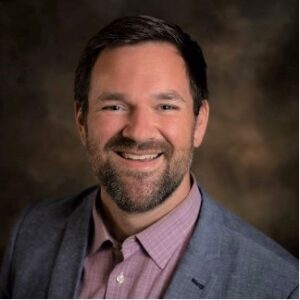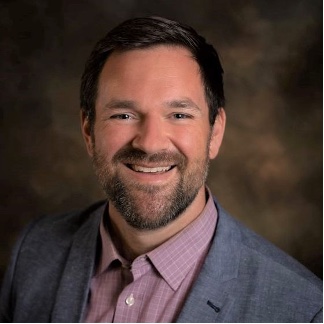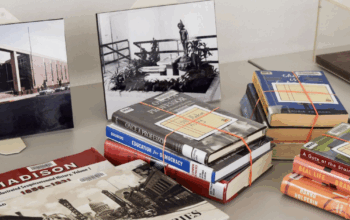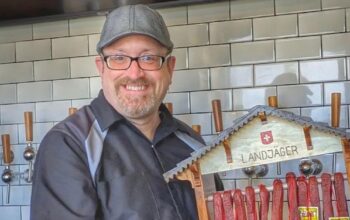From a young age, Gavin Luter knew what he wanted to do with his life. As a kid, Luter lived in the northern part of Newport News, Virginia, and his mom was an elementary school teacher downtown. He recalls driving through town and watching the landscape change from suburban and quaint to nearly neglected. The realization of how different Newport News was from one side of town to the other spurred Luter’s interest in working with universities and the local communities to make a difference.
Luter stayed in Virginia for undergrad, where he attended Virginia Tech and studied public and urban affairs with a concentration in public and nonprofit management. He then moved to Tennessee to get his master’s degree at the University of Tennessee–Knoxville for higher education administration. Still, his time at university was not over. Luter moved to Buffalo, New York, to attend the University of Buffalo, where he received a doctoral degree in educational leadership and policy studies.
Done with his studies, Luter made his final move to Madison after being offered a job at Wisconsin Campus Compact. Three years later, he was offered the chance to be managing director at UniverCity Alliance.
This is a program associated with UW-Madison, and it aims to make the university’s teaching, research, and service more available to cities and local governments: helping them with challenges they may not be able to figure out on their own.
What do you think is the biggest challenge our community faces?
There are so many different challenges with water, like PFAS and nitrates in the groundwater. I personally see governance of watersheds as the biggest challenge. Watersheds flow across many different political boundaries. Mother Nature does not listen to the place where Sun Prairie ends and Cottage Grove begins. We have watersheds that all these places affect differently, and there’s no real way to govern watersheds. So whether you’re talking about PFAS or nitrates, the question inevitably becomes whose job is it to address and fix these issues.
Of course the villages, towns and counties feel a certain amount of urgency or need to do something about it, but their place may not actually have been causing the original problem. Yet, they’re having to deal with the problem because water flows.
What do you wish people in our community understood better?
I wish people understood that there is no great way to manage watersheds, and no watershed can be thought of in isolation. If you think about our bodies, we have a nervous system; it’s not as though if you have a problem with a nerve in your leg, it’s a different nervous system. It’s all part of the same system. So when you think of watersheds, they’re all part of the same system. One flows into another, but people view them in isolation. I don’t see why people think of them as completely independent things, and I think that’s what I would want people to know more about.
What is one change you would make if you could that would make life better for people in our community?
I don’t know that there is one change that we could make, but if so, adding some sort of enabling legislation that would allow the creation of watershed districts. There are lake districts. There are school districts. Why not have a watershed district?
Currently, UniverCity Alliance is working on the Koshkonong Creek, and we can say whatever changes we want to make to the creek, but at the end of the day, who’s going to be responsible for enforcing what we do? The answer is that there really is no way to enforce people to do it. We would have to rely on voluntary agreements between local governments to do what we think should be done, but if they don’t want to do it, they’re not enforceable in a court of law.
The issue with creating enabling legislation is that it probably is never going to happen in our current context because our state Legislature is not big on creating new forms of local government. So this doesn’t exist right now, and I’m not sure if it’s ever going to exist — well, maybe in my lifetime, but certainly not in the next 10 to 20 years.
What in our community gives you hope?
These voluntary associations that people are starting to come together and create. I think there is some momentum in places like Black Earth Creek and Koshkonong Creek where you have kind of watershed alliances, coalitions. For example, there’s Friends of Koshkonong Creek.
So I think there are a lot of voluntary associations out there that are starting to move in that direction, but again it’s all voluntary. Still, it does give me hope that there is more cooperation happening, and a realization that we need to pull our heads out of the sand and notice that what one person does affects what another party is doing.
That is how the Koshkonong Creek project got started. Sun Prairie is growing so much that they’re putting more water into the creek, and that means there’s more flooding downstream. Sun Prairie did say they need to be doing something and be a part of the solution. That gives me hope.






